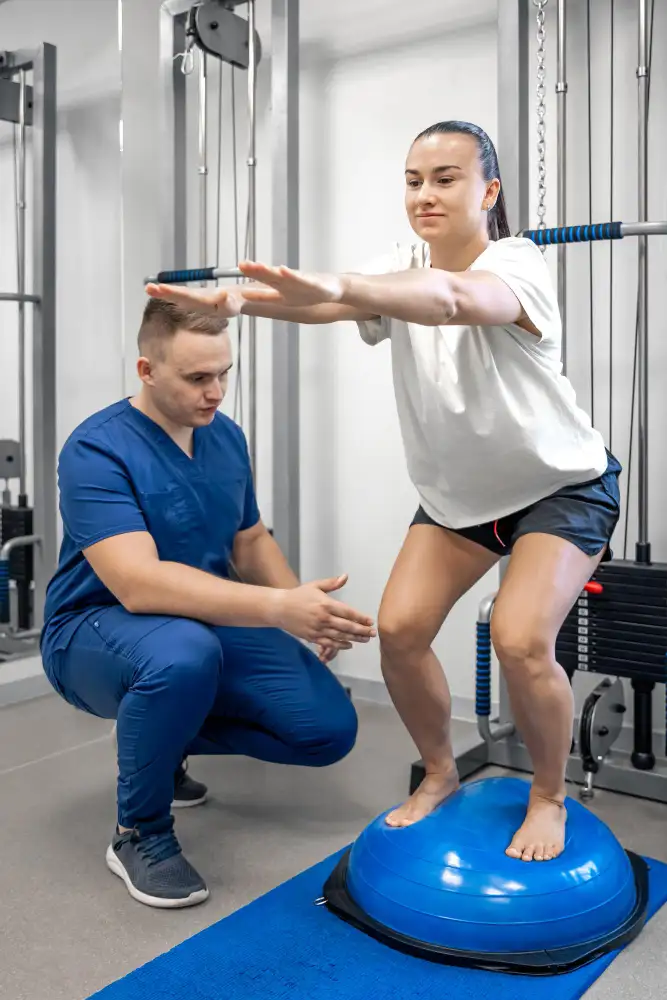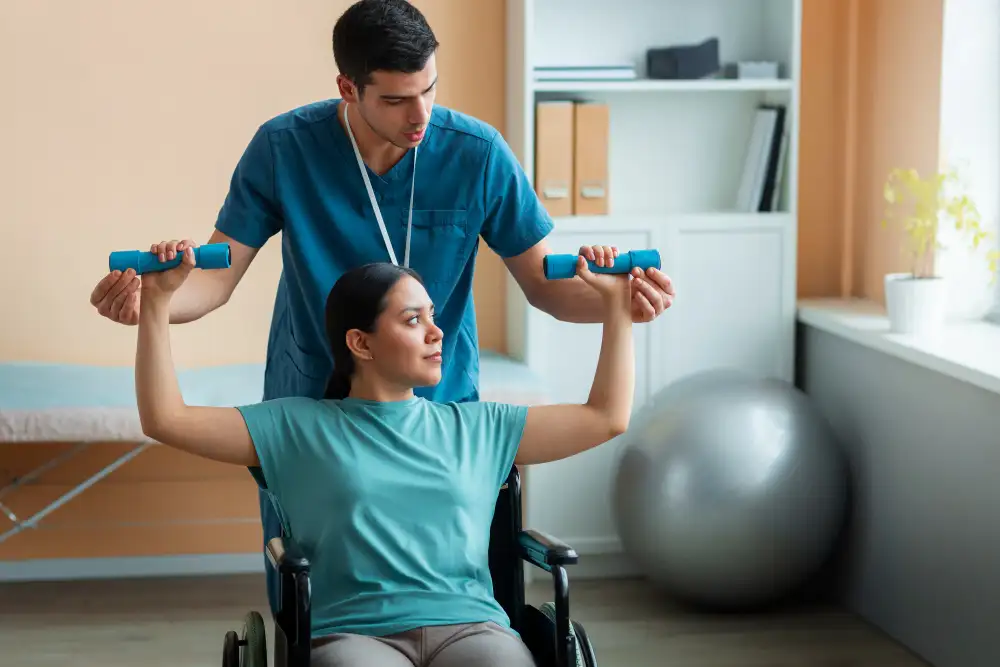
Let us know what support you need — whether it’s improving movement, easing chronic pain, recovering from surgery, or building strength for daily activities.
We match you with qualified NDIS physiotherapists in Sydney who understand your goals and can provide care that’s right for you.
Once connected, your physio will assess your needs and design a personalised therapy plan to help you work towards greater comfort, mobility, and independence.

NDIS physiotherapy is a personalised health service designed to improve how you move, feel, and function in daily life. If you live with a disability or a long-term health condition, a physiotherapist can support you in managing pain, improving posture, building strength, or working through physical recovery after illness or injury.
NDIS-registered physiotherapists are trained to understand a wide range of physical and neurological conditions. They work with you, your carers, and your support team to create a therapy plan that’s practical, goal-based, and tailored to your abilities — helping you take control of your health and wellbeing.

Your physiotherapist will assess how your body moves, including your balance, posture, muscle strength, and flexibility. This helps them understand what’s working well and what may need improvement, so they can plan support that works in your daily life.

Your physio may create exercise plans that are tailored to your ability. These can help you improve strength, balance, mobility, and stamina, so daily tasks become easier and less tiring.

Hands-on techniques such as soft tissue massage, stretching, and joint movement can help reduce stiffness, relieve pain, and improve how freely you move.

If you experience long-term or recurring pain, your physio can use gentle techniques like movement therapy and pacing to help you feel more comfortable and reduce pain in everyday life.

You’ll practise tasks like transferring from bed to a chair, walking short distances, dressing, or making meals—so you feel more confident doing them on your own.

If you need aids like walking frames, crutches, or wheelchairs, your physio can assess, recommend, and adjust the right device. They’ll also train you to use it safely and comfortably.

If you live with a condition like stroke, MS, cerebral palsy, or Parkinson’s, your physio can help improve coordination, reduce muscle tightness, and support daily independence through structured rehabilitation.

For people with conditions that affect breathing, such as COPD, asthma, or neuromuscular disorders, physiotherapy can include breathing exercises and techniques to clear airways and save energy.
Physiotherapists play a key role in supporting people with disabilities to achieve better physical function, manage symptoms, and reach their goals. The help they provide goes far beyond exercises. It includes education, hands-on therapy, and working closely with your support team to make sure your NDIS plan is used effectively.
Your physiotherapist can assist with pain relief strategies, rehabilitation after surgery or injury, and physical conditioning to make daily life easier. They also help with mobility aids, make recommendations for equipment, and write reports to support your NDIS plan reviews and funding decisions. All care is guided by what you want to achieve.


Getting physiotherapy through your NDIS plan is simple if you know what to look for. It starts with checking your current plan to see whether you have the right funding in place. Look under categories like ‘Improved Daily Living’ or ‘Improved Health and Wellbeing’.
Next, you’ll want to choose a physiotherapist who is familiar with NDIS requirements and understands how to support your specific goals. Once you’ve made contact, your provider will book your first appointment, complete an assessment, and begin working with you on a personalised program.
Throughout the process, your physio will keep track of your progress and communicate with your support coordinator or plan manager if needed. This ensures everyone is on the same page and that you’re getting the most from your supports.
Visit a clinic for structured treatment with access to professional equipment and private therapy spaces.
Your physio comes to your home, which is ideal if you have mobility challenges or feel more comfortable in familiar surroundings.
Get support in a local gym, pool, or community centre. This is great for building real-life skills and confidence in everyday environments.

A registered NDIS physiotherapist is approved by the NDIS Commission and can work with all participants, including those who are agency-managed. An unregistered physio can still provide NDIS-funded services, but only to participants who are self-managed or plan-managed. Registration doesn’t always mean better care—but it does mean stricter compliance with NDIS rules and auditing.
NDIS physiotherapists typically follow the NDIS pricing arrangements and limits. Charges depend on the type of session—clinic-based, in-home, or travel-inclusive—and whether report writing or equipment assessments are involved. Always ask for a service agreement before you begin so you understand how the pricing works, including cancellation policies and any travel fees.
If your funding for physiotherapy is used up early, you have a few options. You can reduce the frequency of sessions, ask your physio to focus on self-managed programs (so you continue progress between visits), or work with your support coordinator to adjust your overall budget. In urgent cases, you may also request a plan reassessment from the NDIA if your needs have changed significantly.
They can, and often do. In some cases, a support worker might assist with positioning, communication, or encouragement during physiotherapy. Physios may also train support workers to safely assist you with home exercises, transfers, or mobility tasks.